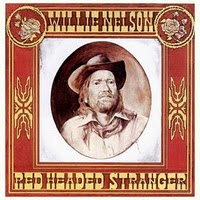 It took all of a minute or so for me to realize I loved this album (when Willie sings “…and he screamed like a panther in the middle of the night,” the phrasing just kills me.) It took a full five minutes to actually give me chills (at the end of track three “…and the killin’s begun.”) “Blue Eyes Cryin’ in the Rain” and “Can I Sleep in Your Arms Tonight” are two of the most beautiful, aching songs I’ve ever heard. My experience with Red Headed Stranger and country music is akin to the experience I had with Kind of Blue and jazz. The very first album I tried in the genre turned out to be the best, but it doesn’t matter because it was so good it led me to explore and enjoy so many others. –Lucas
It took all of a minute or so for me to realize I loved this album (when Willie sings “…and he screamed like a panther in the middle of the night,” the phrasing just kills me.) It took a full five minutes to actually give me chills (at the end of track three “…and the killin’s begun.”) “Blue Eyes Cryin’ in the Rain” and “Can I Sleep in Your Arms Tonight” are two of the most beautiful, aching songs I’ve ever heard. My experience with Red Headed Stranger and country music is akin to the experience I had with Kind of Blue and jazz. The very first album I tried in the genre turned out to be the best, but it doesn’t matter because it was so good it led me to explore and enjoy so many others. –Lucas
Album Reviews
Oliver Nelson “The Blues and the Abstract Truth” (1961)
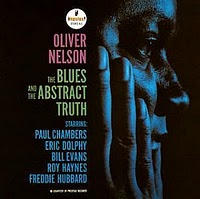 The Blues and the Abstract Truth could very easily be called part II of the Kind of Blue trilogy. Oliver Nelson used two musicians from Kind of Blue: Bill Evans and Paul Chambers. Other notable musicians here include Roy Haynes, Eric Dolphy and Freddie Hubbard. I’ve said it before and I’ll say it again: Freddie Hubbard is the best trumpet player of all time. But as usual, Eric Dolphy stands out as the star, no matter how deep an album’s lineup is. If you want to know how to distinguish between Oliver Nelson and Eric Dolphy’s playing, keep in mind that whenever somebody is playing like a complete lunatic it’s Dolphy. This album came out two years after Kind of Blue and was followed by part III and the peak of the trilogy, Speak No Evil by Wayne Shorter in 1964. Not only does the lineup improve, but the music itself gets better with every chapter. Don’t miss out on Part II or III. –Rob
The Blues and the Abstract Truth could very easily be called part II of the Kind of Blue trilogy. Oliver Nelson used two musicians from Kind of Blue: Bill Evans and Paul Chambers. Other notable musicians here include Roy Haynes, Eric Dolphy and Freddie Hubbard. I’ve said it before and I’ll say it again: Freddie Hubbard is the best trumpet player of all time. But as usual, Eric Dolphy stands out as the star, no matter how deep an album’s lineup is. If you want to know how to distinguish between Oliver Nelson and Eric Dolphy’s playing, keep in mind that whenever somebody is playing like a complete lunatic it’s Dolphy. This album came out two years after Kind of Blue and was followed by part III and the peak of the trilogy, Speak No Evil by Wayne Shorter in 1964. Not only does the lineup improve, but the music itself gets better with every chapter. Don’t miss out on Part II or III. –Rob
Nick Drake “Bryter Layter” (1970)
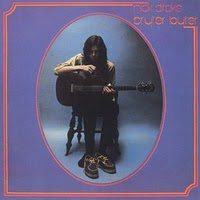 Five Leaves Left was Drake balancing on a wire as lush orchestras complimented bare acoustics with songs that cried in the evening and smiled in the morning. While Pink Moon can be seen as Drake dialed down to -1, Bryter Lyter is Drake turned up to 11. You can hear his smile when he sings on “Hazy Jane II” and you can feel the tears roll on (“Northern Sky”). While the strings on “River Man” and “Cello Song” off his debut added a dramatic flair, the arrangements here added a steady backbone and call for celebration. While the integrity behind the change in sound isn’t that inspiring, the execution is. Who would have known that John Cale of all people who bring the crowning moment of the album when he plays the piano solo in “Northern Sky”? –Allistair
Five Leaves Left was Drake balancing on a wire as lush orchestras complimented bare acoustics with songs that cried in the evening and smiled in the morning. While Pink Moon can be seen as Drake dialed down to -1, Bryter Lyter is Drake turned up to 11. You can hear his smile when he sings on “Hazy Jane II” and you can feel the tears roll on (“Northern Sky”). While the strings on “River Man” and “Cello Song” off his debut added a dramatic flair, the arrangements here added a steady backbone and call for celebration. While the integrity behind the change in sound isn’t that inspiring, the execution is. Who would have known that John Cale of all people who bring the crowning moment of the album when he plays the piano solo in “Northern Sky”? –Allistair
Julian Priester “Love, Love” (1974)
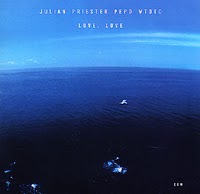 Love, Love is a monster of an album! Despite its age (30+ years), it’s a must for anybody interested in living, breathing, unexpected music. Julian Priester was an alumnus of Blue Note, Sun Ra and most importantly for this record, of Herbie Hancock’s revolutionary Mwandishi group which recorded only three albums in its all too brief lifetime. Each of those Mwandishi albums was a brilliant melding of the cosmic and earthy, extemporisation and groove. Love, Love was recorded after Hancock dissolved his sextet in order to explore an avowedly populist angle with the hugely successful Headhunters. Together with trumpeter Eddie Henderson’s two post-Mwandishi albums, Realization and Inside Out, Love, Love represents one of the late masterpieces of a style later christened “Kozmigroov”. Although comprising two lengthy slabs of music ly intended to be heard as a suite, it’s side one that grabs the listener by the lapels and proceeds to groove remorselessly for a full nineteen minutes. Love, Love however is no feelgood piece of happy-go-lucky frippery. Rather, its relentless bass vamp is likely to plough a deep furrow through your consciousness. Spine tingling shaken percussion presages the arrival of Nyimbo Henry Franklin and Ron McClure’s basses which well up and sweep forward, singularly intent upon adhering like superglue to the groove.
Love, Love is a monster of an album! Despite its age (30+ years), it’s a must for anybody interested in living, breathing, unexpected music. Julian Priester was an alumnus of Blue Note, Sun Ra and most importantly for this record, of Herbie Hancock’s revolutionary Mwandishi group which recorded only three albums in its all too brief lifetime. Each of those Mwandishi albums was a brilliant melding of the cosmic and earthy, extemporisation and groove. Love, Love was recorded after Hancock dissolved his sextet in order to explore an avowedly populist angle with the hugely successful Headhunters. Together with trumpeter Eddie Henderson’s two post-Mwandishi albums, Realization and Inside Out, Love, Love represents one of the late masterpieces of a style later christened “Kozmigroov”. Although comprising two lengthy slabs of music ly intended to be heard as a suite, it’s side one that grabs the listener by the lapels and proceeds to groove remorselessly for a full nineteen minutes. Love, Love however is no feelgood piece of happy-go-lucky frippery. Rather, its relentless bass vamp is likely to plough a deep furrow through your consciousness. Spine tingling shaken percussion presages the arrival of Nyimbo Henry Franklin and Ron McClure’s basses which well up and sweep forward, singularly intent upon adhering like superglue to the groove.
Lucifer’s Friend “Lucifer’s Friend” (1970)
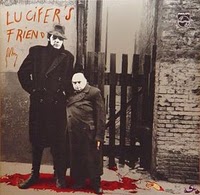 This German hard rock machine, with British belter John Lawton, (later of Uriah Heep) gave birth to one of the best heavy rock albums of the early 70’s. From the screaming vocals of “Ride In The Sky” (with its brass opening reminiscent of Zeppelin’s “The Immigrant Song” and an almost “thrash metal” riff) to the progressive/hard R&B of “Toxic Shadows”, to the lumbering, Sabbathish doom of “Keep Goin”, this album never lets up for a second. Fans of Black Sabbath, Uriah Heep, Deep Purple and Led Zeppelin must have this in their collection! Lawton is one of the best singers in hard rock, and the musicianship of the group is tremendous. Very heavy indeed for a 1971 release. The bonus tracks show the more mainstream, rock ‘n’ rollin’ side of the band, but the instrumentals “Horla” and “Satyr’s Dance” (taken from B-sides) really cook. Do yourself a large favor and check this one out. —Chris
This German hard rock machine, with British belter John Lawton, (later of Uriah Heep) gave birth to one of the best heavy rock albums of the early 70’s. From the screaming vocals of “Ride In The Sky” (with its brass opening reminiscent of Zeppelin’s “The Immigrant Song” and an almost “thrash metal” riff) to the progressive/hard R&B of “Toxic Shadows”, to the lumbering, Sabbathish doom of “Keep Goin”, this album never lets up for a second. Fans of Black Sabbath, Uriah Heep, Deep Purple and Led Zeppelin must have this in their collection! Lawton is one of the best singers in hard rock, and the musicianship of the group is tremendous. Very heavy indeed for a 1971 release. The bonus tracks show the more mainstream, rock ‘n’ rollin’ side of the band, but the instrumentals “Horla” and “Satyr’s Dance” (taken from B-sides) really cook. Do yourself a large favor and check this one out. —Chris
Peter Green “In the Skies” (1979)
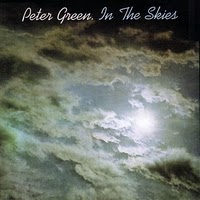 So, after eight years away from the music scene does Peter Green still have it? Of course he did! This album is almost, for me, a testament to the longevity of raw talent. Considering all that Peter Green had been through throughout the decade, it’s quite something that he could come up with something this good (as well as putting out a record better than 1079’s effort from his former bandmates). The only slight downer is the uncertainty over which songs Peter Green actually plays lead on due to his ill-health, but that doesn’t really detract from the quality of these songs. There’s a really laid back feel to the album, like mellow blues. “A Fool No More” was the only song I’d heard prior to purchasing the album and it’s probably this song that sounds most like Green’s Mac efforts (it was originally written for the first Fleetwood Mac album). The guitar playing and vocals are strong, as they are on the other vocal led tracks “In The Skies”, “Seven Stars” and “Just For You”. “In The Skies”, “Tribal Dance” and “Proud Pinto” have Santana-esque rhythm sections and drums, underpinning the laid back mood and displaying Peter Green’s musical influences. “Slabo Day” has a really nice riff and emotive leads (the sleeve notes state that Snowy White plays lead on this track), and “Apostle” is a beautiful closer to the album, displaying the feel and sensitivity of Green’s compositions. As the first of Peter Green’s many comebacks, “In The Skies” is a great effort and a worthy addition to the man’s catalogue. –Tom
So, after eight years away from the music scene does Peter Green still have it? Of course he did! This album is almost, for me, a testament to the longevity of raw talent. Considering all that Peter Green had been through throughout the decade, it’s quite something that he could come up with something this good (as well as putting out a record better than 1079’s effort from his former bandmates). The only slight downer is the uncertainty over which songs Peter Green actually plays lead on due to his ill-health, but that doesn’t really detract from the quality of these songs. There’s a really laid back feel to the album, like mellow blues. “A Fool No More” was the only song I’d heard prior to purchasing the album and it’s probably this song that sounds most like Green’s Mac efforts (it was originally written for the first Fleetwood Mac album). The guitar playing and vocals are strong, as they are on the other vocal led tracks “In The Skies”, “Seven Stars” and “Just For You”. “In The Skies”, “Tribal Dance” and “Proud Pinto” have Santana-esque rhythm sections and drums, underpinning the laid back mood and displaying Peter Green’s musical influences. “Slabo Day” has a really nice riff and emotive leads (the sleeve notes state that Snowy White plays lead on this track), and “Apostle” is a beautiful closer to the album, displaying the feel and sensitivity of Green’s compositions. As the first of Peter Green’s many comebacks, “In The Skies” is a great effort and a worthy addition to the man’s catalogue. –Tom
Harry Nilsson “Aerial Ballet” (1968)
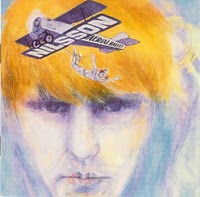 After the Beatles blew everything else off the charts, most artists tried too hard to be “difficult” while others were too stuck in the past, not even attempting to catch up. I think the reason Aerial Ballet impressed Lennon so much and remains classic to this day, is that Nilsson’s songs contained a sweet yearning for yesteryear paired with a (then) modern touch of artistic genius. “Together” is a wonderfully, breezy pop tune, “Everbody’s Talkin” is an incredible cover that got Harry up on the charts, and “One” of course is one of the greatest songs ever written (nothing beats the original, here). –Allistair
After the Beatles blew everything else off the charts, most artists tried too hard to be “difficult” while others were too stuck in the past, not even attempting to catch up. I think the reason Aerial Ballet impressed Lennon so much and remains classic to this day, is that Nilsson’s songs contained a sweet yearning for yesteryear paired with a (then) modern touch of artistic genius. “Together” is a wonderfully, breezy pop tune, “Everbody’s Talkin” is an incredible cover that got Harry up on the charts, and “One” of course is one of the greatest songs ever written (nothing beats the original, here). –Allistair
Budgie “Budgie” (1971)
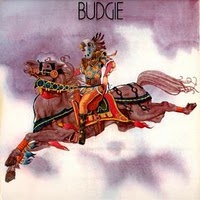 Adopting Black Sabbath’s Master of Reality as a sludgy sonic template while staying grounded in a stomping psych-blues that even in 1971 must have sounded like a bit of a throwback, Budgie are among the truly unsung purveyors of Heavy in its infancy. Like Ozzy Osbourne, Burke Shelley’s voice anticipates the Brit-metal wail that would become a standard—though in Shelley’s case, the sense of adenoidal strain also anticipates Geddy Lee’s shriek, meaning of course that he’s bound to put off a lot of listeners. Me, I think it sounds just fine, a striking counterpoint to the dark mood of the trio’s bottom-heavy music. Derivative moments detract slightly from the proceedings—the middle section of “Nude Disintegrating Parachutist Woman,” for example, is a bit too close to the middle section of Zeppelin’s “Dazed and Confused” for comfort—but on the whole this debut already puts the group in the upper ranks of that early-70s “power trio” sound, and their whimsically silly lyrics are a refreshing change from the pseudo-mystical drama that their counterparts were dealing in. It’s a shame these guys are unknown outside the UK; I have yet to find any of their albums for a reasonable price. So I’m now considering paying unreasonable prices—I like ’em that much. –Will
Adopting Black Sabbath’s Master of Reality as a sludgy sonic template while staying grounded in a stomping psych-blues that even in 1971 must have sounded like a bit of a throwback, Budgie are among the truly unsung purveyors of Heavy in its infancy. Like Ozzy Osbourne, Burke Shelley’s voice anticipates the Brit-metal wail that would become a standard—though in Shelley’s case, the sense of adenoidal strain also anticipates Geddy Lee’s shriek, meaning of course that he’s bound to put off a lot of listeners. Me, I think it sounds just fine, a striking counterpoint to the dark mood of the trio’s bottom-heavy music. Derivative moments detract slightly from the proceedings—the middle section of “Nude Disintegrating Parachutist Woman,” for example, is a bit too close to the middle section of Zeppelin’s “Dazed and Confused” for comfort—but on the whole this debut already puts the group in the upper ranks of that early-70s “power trio” sound, and their whimsically silly lyrics are a refreshing change from the pseudo-mystical drama that their counterparts were dealing in. It’s a shame these guys are unknown outside the UK; I have yet to find any of their albums for a reasonable price. So I’m now considering paying unreasonable prices—I like ’em that much. –Will
Talking Heads “Remain in Light” (1980)
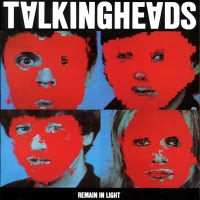 In the height of punk and the beginning of hip-hop, white and black music had never been more distant. David Bryne had his eye on fixing that. The funky rhythm section returns more complete then ever with Bryne being more characteristic then ever playing with words and sounds that is both unbelievably cool and bizarre. Brian Eno’s songwriting contribution and production just top it off, from the computer freak out in the opening track to the excellent “Once in a Lifetime”. Above all, it’s Byrne’s tackling questions about our identity in a booming society (“Seen and Not Seen”) and sympathizing with people that aren’t a part of it (“Listening Wind”), that makes it all the more poignant. It’s like those parties where everyone gets drunk and dances their asses off, and around 3am the guys with beards who like to talk about their emotions go on about the government and the super ego. –Allistair
In the height of punk and the beginning of hip-hop, white and black music had never been more distant. David Bryne had his eye on fixing that. The funky rhythm section returns more complete then ever with Bryne being more characteristic then ever playing with words and sounds that is both unbelievably cool and bizarre. Brian Eno’s songwriting contribution and production just top it off, from the computer freak out in the opening track to the excellent “Once in a Lifetime”. Above all, it’s Byrne’s tackling questions about our identity in a booming society (“Seen and Not Seen”) and sympathizing with people that aren’t a part of it (“Listening Wind”), that makes it all the more poignant. It’s like those parties where everyone gets drunk and dances their asses off, and around 3am the guys with beards who like to talk about their emotions go on about the government and the super ego. –Allistair
What a gathering of great musical minds. Adrian Belew, Brian Eno AND David Byrne!? What results is like the offspring of 80’s King Crimson and David Bowie’s Low on uppers. “House in Motion” is ridiculously fun to listen to. The Reggae rhythm mixed with East Indian themes, Adrian Belew doing his thing on guitar, the repeating electronic trumpet and that “mbarp” sound. What the heck is that sound? –Rob
Miles Davis “E.S.P.” (1965)
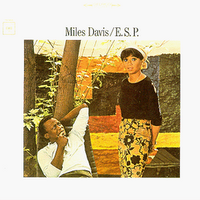 After the uncertainties of the early 1960s, the Miles Davis Quintet kept to the old repertoire but cut their music back to the bone in their live performances, then, on ESP, the first studio recording by the new Quintet with Wayne Shorter on tenor, they brought in new material and built up a new sound – then, after Miles Smiles, they cut back again, then built up a new sound with In A Silent Way, and then in the early 1970s cut back again. Whether you prefer the sparser albums, finding the essence of Davis’s music in their simpleness, or the albums with the richer ingredients, might just be a matter of taste: but I go for the fuller bodied ones and think ESP is one of the great Davis albums. Davis had been playing with this rhythm section for a couple of years and now, finally, they had found a tenor player totally suited to their music. Ron Carter is superb, building a complexity of rhythms while always keeping a strong rhythmic centre; Tony Williams is superb, building intricate patterns of rhythm (although he would be even better over the next three or four years); Herbie Hancock is superb, cutting his piano back to horn like lines (compare the version of Little One on this album with Hancock’s on his Maiden Voyage album: Hancock’s is lusher, Davis’s is starker – both are amongst the great jazz recordings of 1965); Wayne Shorter is superb – I have often heard the aggression of is playing referred to, but for me there is a great warmth in his sound, creating a satisfying contrast with Davis; and Miles Davis is superb – I have previously called his playing in the mid 1960s icy: I don’t want to imply that his music is cold, but it has the freshness of a frosty morning. The sound of the album has a wonderful balance, it has the bright lines of a Vermeer interior, the sounds having their own place but all working together with a symmetry. This is the creation of a world of clarity. –Nick
After the uncertainties of the early 1960s, the Miles Davis Quintet kept to the old repertoire but cut their music back to the bone in their live performances, then, on ESP, the first studio recording by the new Quintet with Wayne Shorter on tenor, they brought in new material and built up a new sound – then, after Miles Smiles, they cut back again, then built up a new sound with In A Silent Way, and then in the early 1970s cut back again. Whether you prefer the sparser albums, finding the essence of Davis’s music in their simpleness, or the albums with the richer ingredients, might just be a matter of taste: but I go for the fuller bodied ones and think ESP is one of the great Davis albums. Davis had been playing with this rhythm section for a couple of years and now, finally, they had found a tenor player totally suited to their music. Ron Carter is superb, building a complexity of rhythms while always keeping a strong rhythmic centre; Tony Williams is superb, building intricate patterns of rhythm (although he would be even better over the next three or four years); Herbie Hancock is superb, cutting his piano back to horn like lines (compare the version of Little One on this album with Hancock’s on his Maiden Voyage album: Hancock’s is lusher, Davis’s is starker – both are amongst the great jazz recordings of 1965); Wayne Shorter is superb – I have often heard the aggression of is playing referred to, but for me there is a great warmth in his sound, creating a satisfying contrast with Davis; and Miles Davis is superb – I have previously called his playing in the mid 1960s icy: I don’t want to imply that his music is cold, but it has the freshness of a frosty morning. The sound of the album has a wonderful balance, it has the bright lines of a Vermeer interior, the sounds having their own place but all working together with a symmetry. This is the creation of a world of clarity. –Nick
Taj Mahal “Taj Mahal” (1968)
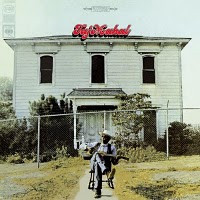 Taj Mahal’s debut is a perfect example of how The Blues and Rock are one and the same. It smokes from start to finish, greatly thanks to Ry Cooder’s presence on guitar. There’s a lot of use of the word “baby”, but it seems to mean something deeper than when you hear it today in the latest cancerous pop morsel. I’ve always admired singers who seem to be able to sing right from their gut, like Howlin’ Wolf and Taj Mahal. Of course, no Blues album is complete without a reference to a gypsy woman, which Taj Mahal was aware of. hahaha. –Rob
Taj Mahal’s debut is a perfect example of how The Blues and Rock are one and the same. It smokes from start to finish, greatly thanks to Ry Cooder’s presence on guitar. There’s a lot of use of the word “baby”, but it seems to mean something deeper than when you hear it today in the latest cancerous pop morsel. I’ve always admired singers who seem to be able to sing right from their gut, like Howlin’ Wolf and Taj Mahal. Of course, no Blues album is complete without a reference to a gypsy woman, which Taj Mahal was aware of. hahaha. –Rob
Khan “Space Shanty” (1972)
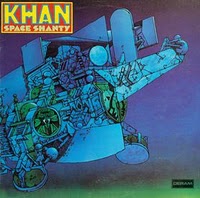 Try as I might I can’t find one flaw on this record. Great prog/space rock from this one album project featuring the amazing instrumentation of Gong’s Steve Hillage (guitar) and Egg’s Dave Stewart (keyboard). On top of all that you get some great songs. Seldom has a forty-five minute album gone by so fast. I’ve got my bags packed and ready to move into this Space Shanty. –Brian
Try as I might I can’t find one flaw on this record. Great prog/space rock from this one album project featuring the amazing instrumentation of Gong’s Steve Hillage (guitar) and Egg’s Dave Stewart (keyboard). On top of all that you get some great songs. Seldom has a forty-five minute album gone by so fast. I’ve got my bags packed and ready to move into this Space Shanty. –Brian


